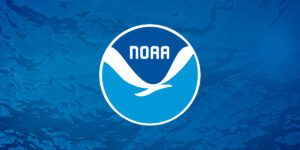
Federal fisheries officials and their partners have released their National Five-Year Strategy for Combating Illegal, Unreported and Unregulated (IUU) Fishing, a global problem impacting ocean ecosystems, the economy and food security.
The strategy, announced in mid-October, details U.S. priorities and plans for the next five years to promote maritime security worldwide.
The strategy includes a U.S. Interagency Working Group on IUU Fishing, composed of 21 member agencies building an expanding toolbox for partners to combat IUU fishing.
Over the next five years, the working group plans to engage with five priority flag states and administrations: Ecuador, Panama, Senegal, Taiwan and Vietnam, focusing on helping them in their ongoing efforts to combat IUU fishing and related threats.
These flag states and administrations were selected in large part on their demonstrated willingness to take effective action against IUU fishing activities associated with their vessels, according to U.S. officials. They are located within priority regions the working group identified as being at high risk for IUU fishing activity, having no mechanism to prevent entry of illegally caught seafood into the regional markets and lacking capacity to fully address such illegal activity.
U.S. activities will be tailored to specific needs of each region, flag state or administration and U.S. projects. Activities already underway, U.S. officials said.
The strategy calls for agencies to leverage existing tools and innovate new technologies to improve global governance, conservation and management measures. They said that the emphasis on partnerships within the United States, between foreign governments and with non-government organizations and industry will boost the effectiveness of ongoing efforts.
The working group’s efforts are aligned closely with the President Biden’s National Security Memorandum on Combating Illegal, Unreported and Unregulated Fishing and Associated Labor Abuses.
NOAA, the State Department and the U.S. Coast Guard, in coordination with other working group agencies, are to oversee the implementation of the strategy and track progress in priority regions and with the priority flag states and administrations, NOAA officials said.
